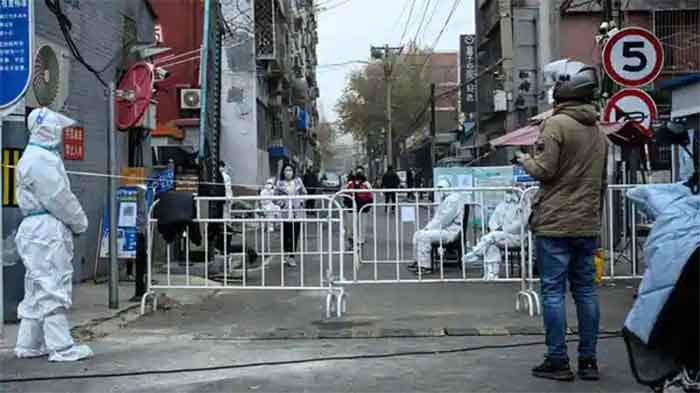
To
Shri Arjun Munda,
Minister of Tribal Affairs,
Government of India
Subject: Covid-19, lock down and health crisis in Adivasi areas – urgent intervention called for
Dear Sir,
We, a group of concerned citizens engaged with Adivasis and their organisations submitted an assessment report to the Ministry of Tribal Affairs in May 2020 highlighting the problems that Adivasis and other forest dwellers face due to the COVID pandemic and lockdown measures[1]. The situation has rapidly deteriorated and has become alarming requiring urgent measures which are suggested below:
- Covid-19 spread which was sparse during the first wave has increased its severity and spread this year has compounded with poor or non-existent health service. As many as 21 particularly vulnerable tribal groups (PVTGs) have reported COVID infection.[2]
- Health Crisis:
Adivasi areas already lack effective and accessible health care facilities. Lack of information on precautionary measures to prevent infection, absence of testing facilities, basic equipments like Oximeters, medicines, and capacity to deal with emergencies have compounded the crisis. Even to access basic health facilities, one has to travel to far away district headquarters which are themselves burdened beyond their capacity.
- Livelihood Crisis:
87% of the Adivasis are forest dependent. Minor Forest Produce collection, transport and sales are affected by the lockdown. State procurement and special measures to address livelihood and food security are largely absent or ineffective. Other calamities as cyclones, forest fires and untimely rains have further pushed them to severe distress. Social security schemes such as MGNREGA are too sparsely implemented in Adivasi areas causing further distress during COVID time.
- Protected Areas:
MoEFCC has repeated its advisory to the forest department to restrict entry of Adivasis in the forests particularly National Parks/Sanctuaries/ Tiger Reserves who are the most isolated and vulnerable people affecting immediately about 3 to 4 million people living in and around protected areas, mostly PVTGs, nomadic and pastoral communities among others. Needless to say, this has further legitimised the antagonism of the forest department field staff with the forest dwellers.
Urgent actions are required to avert a catastrophe of health and livelihoods in Adivasi areas:
- Setting up a COVID Response Cell in MoTA to collect data on the pandemic’s spread, communication of protocols to be followed for prevention and transmission, Rapid Testing and special vaccination drives for Adivasi areas. Special monitoring of health care structure and services.
- Immediate removal of all restriction from entry into forests of any kind, to exercise all rights approved by their respective Gram Sabha with due Covid precautions, support for transport of forest produce, their procurement and marketing by the State Governments as necessary to prevent distress sale, organise delivery of essential materials as food grains, vegetables, medicines, masks, sanitizers etc, effective coverage with all the Social Security Schemes such as MGNREGA.
It is necessary to activate state tribal welfare departments to ensure all the above measures and to create a mechanism to monitor and report to MoTA on the situation, status of services and emergencies.
Suggested mechanism to streamline flow of information:
- MoTA should ask the Tribal welfare departments to notify the Block level officers and inform the ministry.
- MoTA and state Tribal welfare departments should organisemeeting with the BDOs to clarify the tasks to be carried out.
- Block level officers should make a list of hamlets in the Block, get the Gram Sabhas to nominate two persons who can be contacted over mobile and where this is not workable, make other suitable arrangements for communication.
- Block level officers and the Gram Sabha contacts should compile a status report of basic information required to assess the covid situation, the needs, services available and whether the services are available to Adivasi communities or not etc
- The Block level officersshould coordinate with all relevant departments to ensure that these needs are met. The District Collector should ensure that the Block level officers are able to execute these tasks by empowering him/her as needed.
We look forward to your kind attention to the issues and the suggestions for ensuring effective response and relief to the Adivasi communities to deal with the COVID pandemic.
Reports for reference:
- Report on COVID Lockdown impact on tribals and forest dwellers_4th May (fra.org.in)
- VanAdhikarAurCovid19 Bulletin I.pdf (fra.org.in)
- Covid And ForestRightsBulletin-II (fra.org.in)
- Covid And ForestRightsBulletin-III.pdf (fra.org.in)
Letter endorsed by,
- Madhu Sarin, Campaign for Survival & Dignity, Chandigarh
- C R Bijoy, Campaign for Survival & Dignity, Tamil Nadu
- Shankar Gopalakrishnan, Campaign for Survival & Dignity, Dehradun
- Y Giri Rao, Vasundhara, Bhubaneswar
- Souparna Lahiri and Soumitra Ghosh , AIFFM ( All India Forum of Forest Movements )
- George Monippally, Jharkhand
- Tarun Joshi, Van Panchayat Sangharsh Morcha, Uttarakhand
- Prasant Mohanty, NIRMAN,Bhubaneswar
- Viren lobo, Akhil Bharatiya Mazdoor Kisan Sangharsh Samiti.
- Sanjay Basu Mullick, Jharkhand Jangal Bachao Andolan (JJBA) & All India Front for Forest Rights Struggles (AIFFRS)
- Amitabh Bachchan Hyder, Kerala hornbill foundation
- Dr Palla Trinadh Rao, Andhra Pradesh
- Archana Soreng, Khadia Tribe, Researcher
- Barna Baibhav Panda, Researcher
- Tushar Dash, Independent Researcher,
- Sushmita, Independent Researcher, Mumbai
- Sanghamitra Dubey, Independent Researcher, Bhubaneswar
- Manshi Asher, Himdhara Collective
- Meenal and Neema Pathak Broome, Kalpavriksh
- Dilip Gode, Nagpur
[1] Report sent to the minister by email on 4th May 2020. https://www.fra.org.in/document/COVID-19%20Assessment%20Report.pdf
[2] 21 tribal communities across eight different PVTGs including two from the secluded Bonda in Odisha have tested positive. Coronavirus | 21 members of vulnerable tribes infected in Odisha – The Hindu, May 14, 2021. Members of the Dongria Kondh, Kutia Kondha Didiya, and Saura tribes[2] have also tested positive, see COVID-19: Increasing Cases Reported Among Vulnerable Tribal Communities in Central India | NewsClick
GET COUNTERCURRENTS DAILY NEWSLETTER STRAIGHT TO YOUR INBOX














































